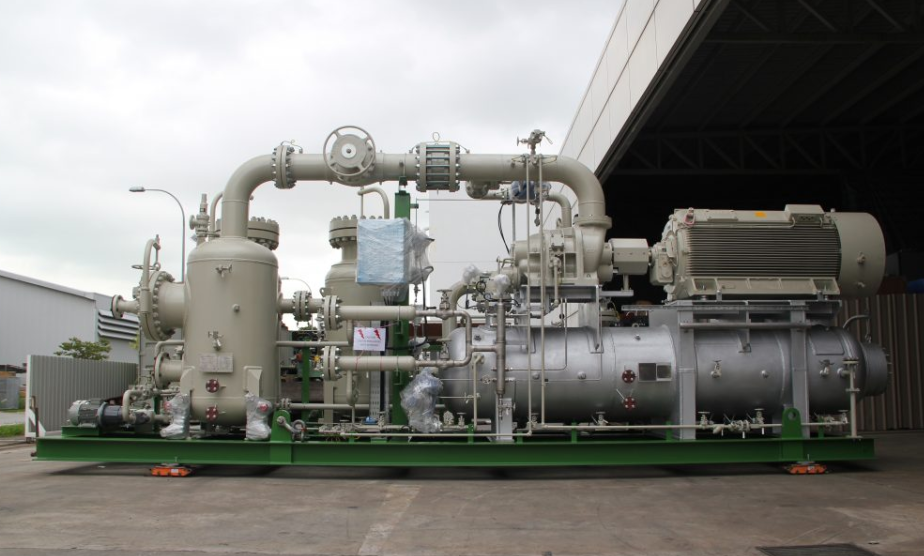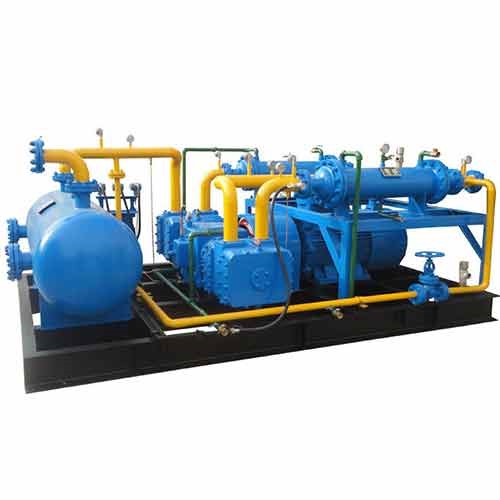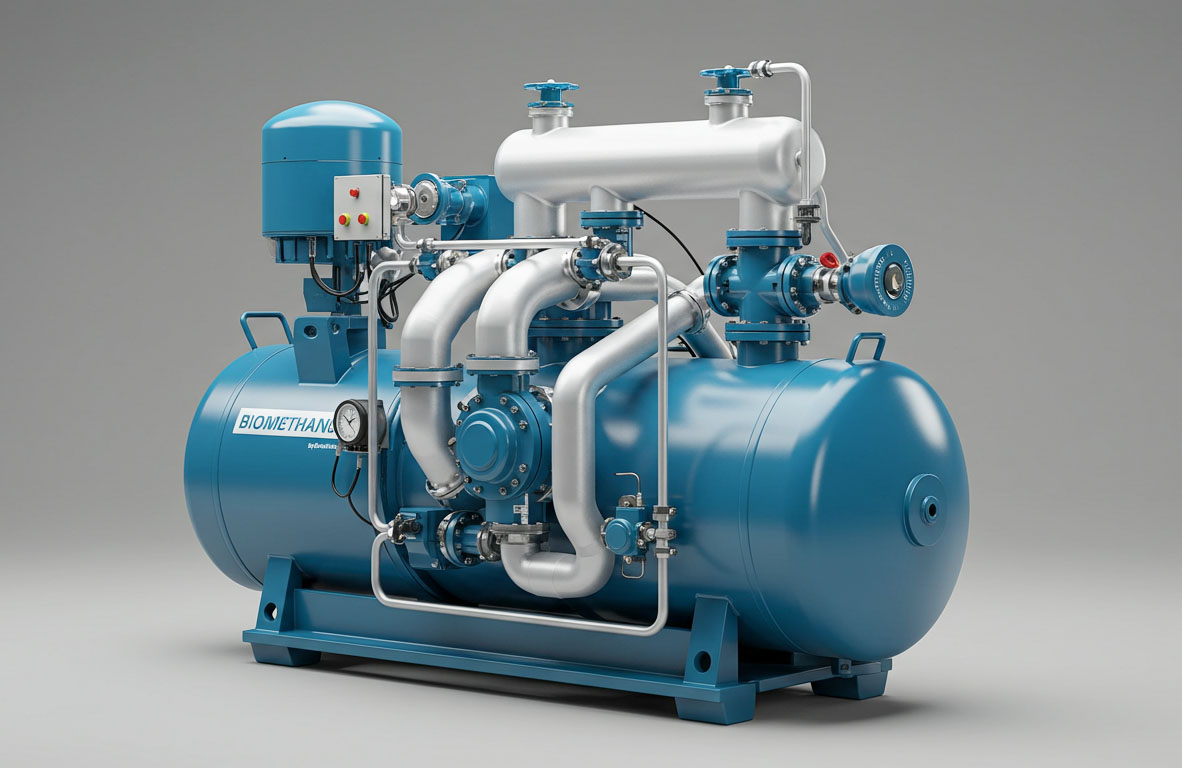LPG Compressor: Types, Applications, and Maintenance Tips

In the world of industrial and domestic energy applications, LPG Compressor (Liquefied Petroleum Gas) holds a crucial place. LPG is a versatile and efficient source of energy, finding applications in various industries, including petrochemical, oil & gas, manufacturing, and even in our homes for cooking and heating. To efficiently handle and distribute LPG, LPG compressors play a pivotal role. In this comprehensive guide, we will delve into the world of LPG compressors, exploring their types, applications, factors to consider when choosing one, maintenance tips, safety measures, and future trends in LPG compressor technology.
What is LPG (Liquefied Petroleum Gas)?
LPG, or Liquefied Petroleum Gas, is a flammable hydrocarbon gas that is commonly used as a source of energy. It is a mixture of propane and butane gases, which are both byproducts of the petroleum refining process. LPG is stored in a liquid state under pressure and is vaporized when released for use. Its clean-burning properties make it a popular choice for a wide range of applications.
Importance of LPG Compressors in Various Industries
LPG compressors are the workhorses behind the efficient handling and distribution of LPG in various industries. These compressors are essential because they help in maintaining the pressure and flow rate of LPG, ensuring that it can be safely transported and utilized. Without LPG compressors, the distribution and utilization of this valuable energy source would be significantly compromised.
Types of LPG Compressors
LPG compressors come in various types, each with its unique features and advantages. Let’s explore the three main types of LPG compressors:
1. Reciprocating LPG Compressors
Reciprocating LPG compressors use a piston-cylinder arrangement to compress the gas. They are known for their robust construction and reliability. These compressors are suitable for high-pressure applications and are often used in industries where precise pressure control is essential. They are also highly efficient in handling varying load demands.
Advantages:
- High efficiency and durability.
- Suitable for high-pressure applications.
- Excellent pressure control.
2. Rotary Screw LPG Compressors
Rotary screw LPG compressors operate on a rotary screw mechanism. They are known for their continuous and smooth operation. These compressors are ideal for applications that require a constant flow of compressed gas. They are energy-efficient and often used in medium to high-pressure LPG systems.
Advantages:
- Continuous and reliable operation.
- Energy-efficient.
- Low maintenance requirements.
3. Centrifugal LPG Compressors
Centrifugal LPG compressors use centrifugal force to compress the gas. They are suitable for high-capacity applications and can handle a wide range of flow rates. These compressors are often used in large-scale industrial processes where a significant volume of LPG needs to be compressed efficiently.
Advantages:
- High capacity and flow rate handling.
- Energy-efficient for large-scale applications.
- Minimal pulsation in the gas flow.
Each type of LPG compressor has its strengths and is chosen based on specific application requirements. Understanding the features and advantages of each type is crucial when selecting the right compressor for a particular task.
LPG Compressor Applications
LPG compressors find applications across diverse industries. Let’s explore some of the common uses:
Industrial Uses: Petrochemical, Oil & Gas, Manufacturing
In the petrochemical industry, LPG is used as a feedstock for various processes, making Gas compressors vital for maintaining a consistent supply. Similarly, in the oil & gas industry, LPG is used for well stimulation and as fuel for vehicles and equipment. Manufacturing industries often use LPG for heating and as a source of energy for various processes.
Domestic LPG Distribution
In many homes around the world, LPG is the primary source of energy for cooking and heating. LPG compressors play a crucial role in ensuring a steady supply of LPG to households.
Vehicle Fueling Stations
LPG is also used as an alternative fuel for vehicles. LPG fueling stations rely on compressors to fill LPG tanks efficiently. This alternative fuel source is known for its environmental benefits, as it produces fewer emissions compared to traditional gasoline or diesel.
The diverse applications of LPG compressors underscore their importance in various sectors, from heavy industry to everyday household use.
Factors to Consider When Choosing an LPG Compressor
Selecting the right LPG compressor for a specific application involves considering several factors:
Capacity and Flow Rate Requirements
The required capacity and flow rate of the compressor should match the demands of the application. It’s essential to choose a compressor that can meet the required gas output effectively.
Energy Efficiency and Environmental Considerations
Energy efficiency is a critical factor, especially in industries aiming to reduce their carbon footprint. Choosing an energy-efficient compressor can lead to cost savings and environmental benefits.
Safety Features
Safety should always be a top priority when working with LPG. Ensure that the chosen compressor has safety features such as pressure relief valves, leak detection systems, and emergency shutdown mechanisms.
Maintenance and Serviceability
Consider the ease of maintenance and availability of service and replacement parts. Regular maintenance is crucial for the longevity and optimal performance of LPG compressors.
Maintenance and Care of LPG Compressors
Importance of Regular Maintenance
Regular maintenance is the key to ensuring the longevity and reliable operation of LPG compressors. Neglecting maintenance can lead to costly breakdowns and safety hazards. Maintenance tasks should be carried out according to the manufacturer’s recommendations.
Recommended Maintenance Tasks and Schedules
Common maintenance tasks for LPG compressors include:
- Lubrication of moving parts.
- Inspection of seals and gaskets.
- Cleaning of filters and cooling systems.
- Calibration of pressure and temperature sensors.
Maintenance schedules should be followed diligently to prevent unexpected downtime and ensure safety.
Tips for Ensuring Longevity and Optimal Performance
To maximize the lifespan and performance of LPG compressors:
- Keep the compressor clean and free from debris.
- Monitor pressure and temperature regularly.
- Train personnel in safe operating procedures.
- Address any issues promptly to prevent further damage.
Proactive maintenance and care go a long way in preserving the efficiency and reliability of LPG compressors.
LPG Compressor Safety Measures
Safety is paramount when dealing with LPG. Here are some essential safety measures to follow:
Safety Precautions for Handling LPG
- Wear appropriate personal protective equipment (PPE) when working with LPG.
- Ensure proper ventilation in areas where LPG is stored or used.
- Avoid open flames and sparks in the vicinity of LPG.
Ventilation and Gas Detection
Proper ventilation is crucial to prevent the buildup of LPG vapors, which can be flammable or pose health risks. Gas detection systems can alert personnel to the presence of LPG leaks.
Emergency Procedures and Training
Employees should be well-trained in emergency procedures, including how to respond to gas leaks, fires, or equipment failures. Regular drills can help ensure everyone knows how to react safely in emergencies.
Future Trends in LPG Compressor Technology
As technology continues to advance, LPG compressor technology is also evolving. Here are some future trends to watch out for:
Advancements in Efficiency and Energy Savings
Manufacturers are constantly working on improving the efficiency of LPG compressors to reduce energy consumption and operating costs.
Smart Monitoring Systems for Improved Performance
Smart monitoring and control systems are becoming more prevalent, allowing operators to monitor and optimize compressor performance in real-time. This helps in predictive maintenance and energy efficiency.
Sustainable Practices in LPG Compression
The industry is increasingly focusing on sustainable practices, such as utilizing renewable energy sources for compression and reducing emissions during LPG production and distribution.
Conclusion
In conclusion, LPG compressors play a vital role in various industries and in our daily lives. They ensure the efficient handling and distribution of LPG, a versatile and clean-burning energy source. Choosing the right type of LPG compressor, considering factors such as capacity, energy efficiency, safety features, and maintenance requirements, is essential for the success of any LPG-related operation. By following proper maintenance and safety measures, we can ensure the longevity and reliability of these critical pieces of equipment. As technology continues to advance, the future of LPG compressor technology looks promising, with a focus on efficiency, sustainability, and smart monitoring systems. Embracing these advancements will further enhance the efficiency and environmental friendliness of LPG handling and distribution. So, whether in heavy industry or in our homes, LPG compressors continue to be indispensable in mastering the world of LPG.


